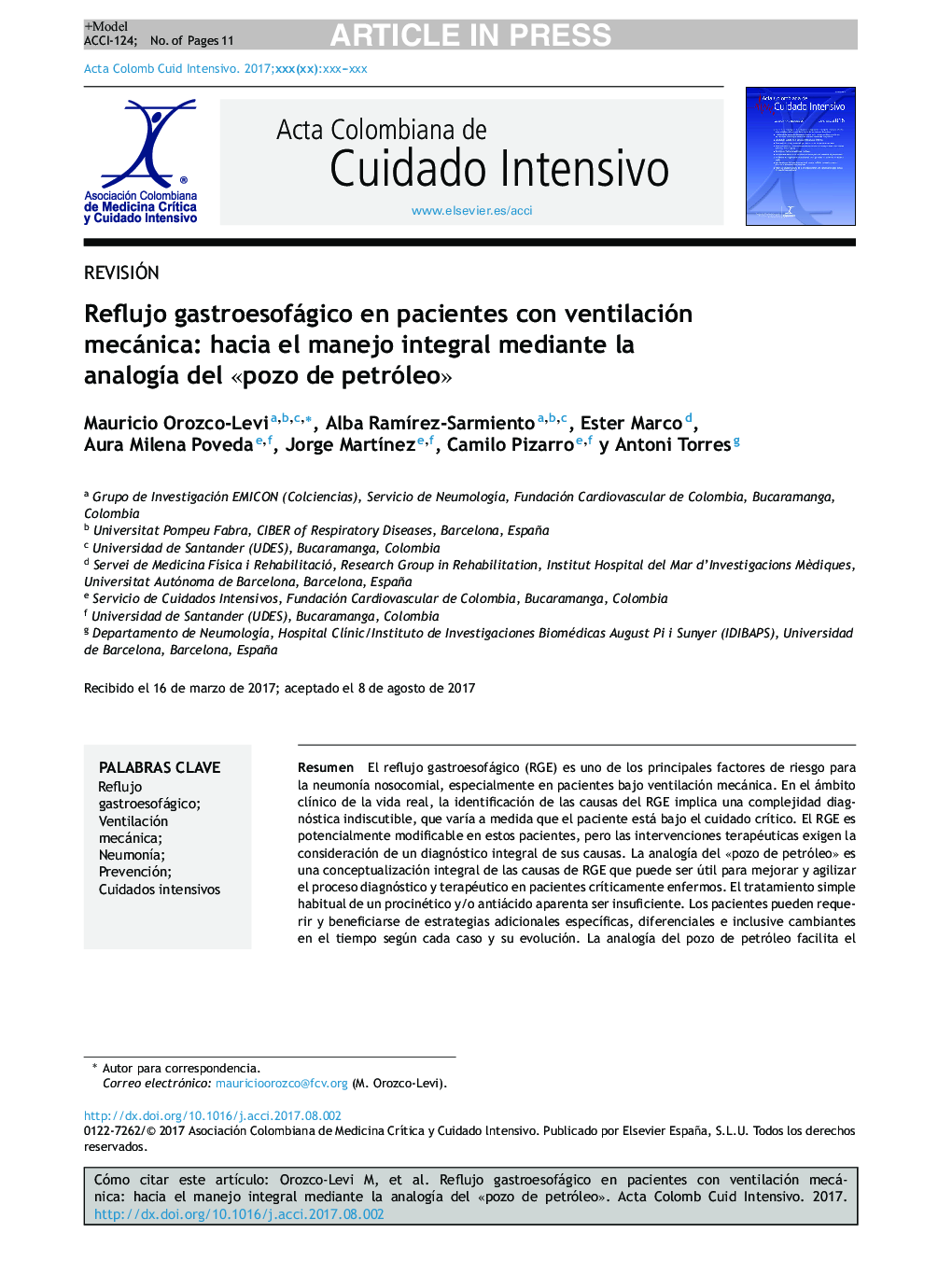| Article ID | Journal | Published Year | Pages | File Type |
|---|---|---|---|---|
| 8694520 | Acta Colombiana de Cuidado Intensivo | 2017 | 11 Pages |
Abstract
Gastroesophageal reflux (GER) is one of the major risk factors for nosocomial pneumonia, mainly in patients on mechanical ventilation. In a “real life” setting, identifying the causes of GER involves an indisputable diagnostic complexity, which varies as the patient is under critical care. The “oil well” analogy is a comprehensive conceptualisation of the causes of GER, which is potentially modifiable in these patients, although therapeutic interventions require a comprehensive assessment of its causes. The analogy appears to be useful to improve and expedite the diagnostic and therapeutic process in critically ill patients. The simple usual prokinetic and/or antacid treatment appears to be insufficient. Patients may require and benefit from specific, differential, and additional strategies that change with the time according to each case and its progression. The oil well analogy is an aid to the multifactorial diagnosis, and highlights the dynamic nature of these causes of GER, thus allowing the clinicians to offer therapeutic target both individually and dynamically in each patient.
Keywords
Related Topics
Health Sciences
Medicine and Dentistry
Critical Care and Intensive Care Medicine
Authors
Mauricio Orozco-Levi, Alba RamÃrez-Sarmiento, Ester Marco, Aura Milena Poveda, Jorge MartÃnez, Camilo Pizarro, Antoni Torres,
